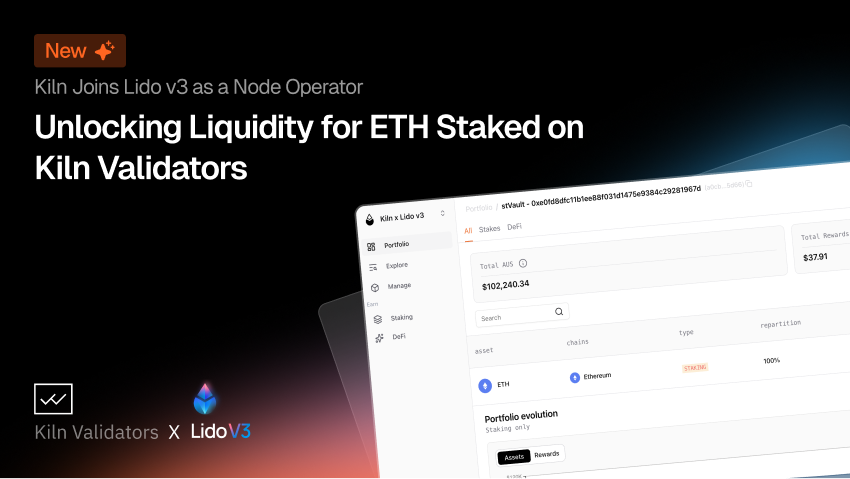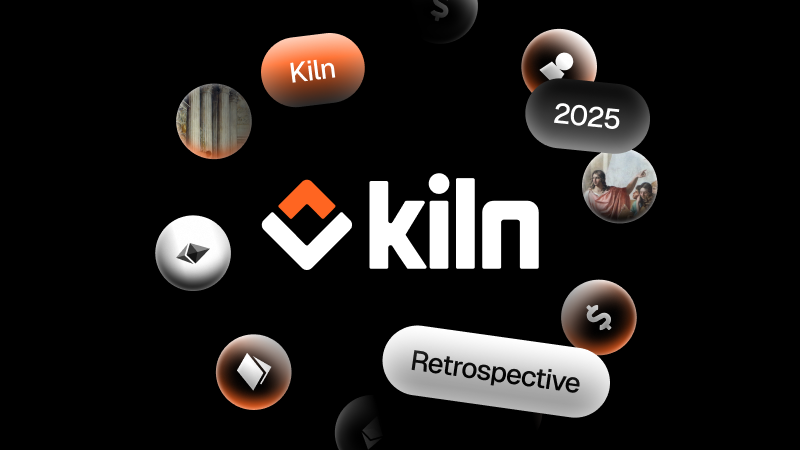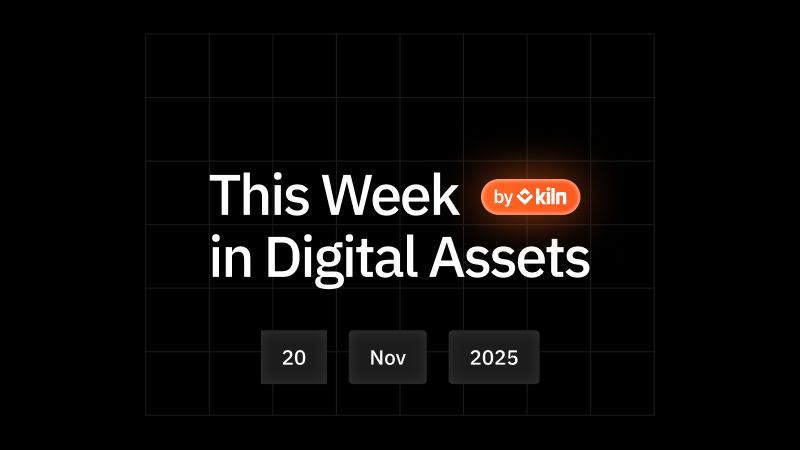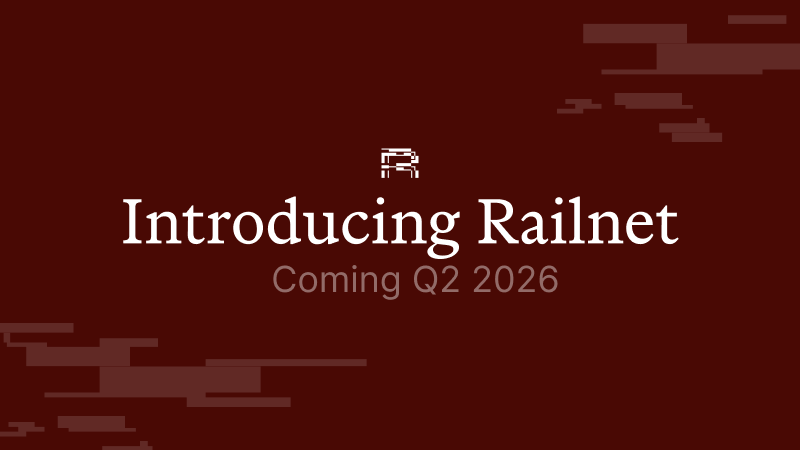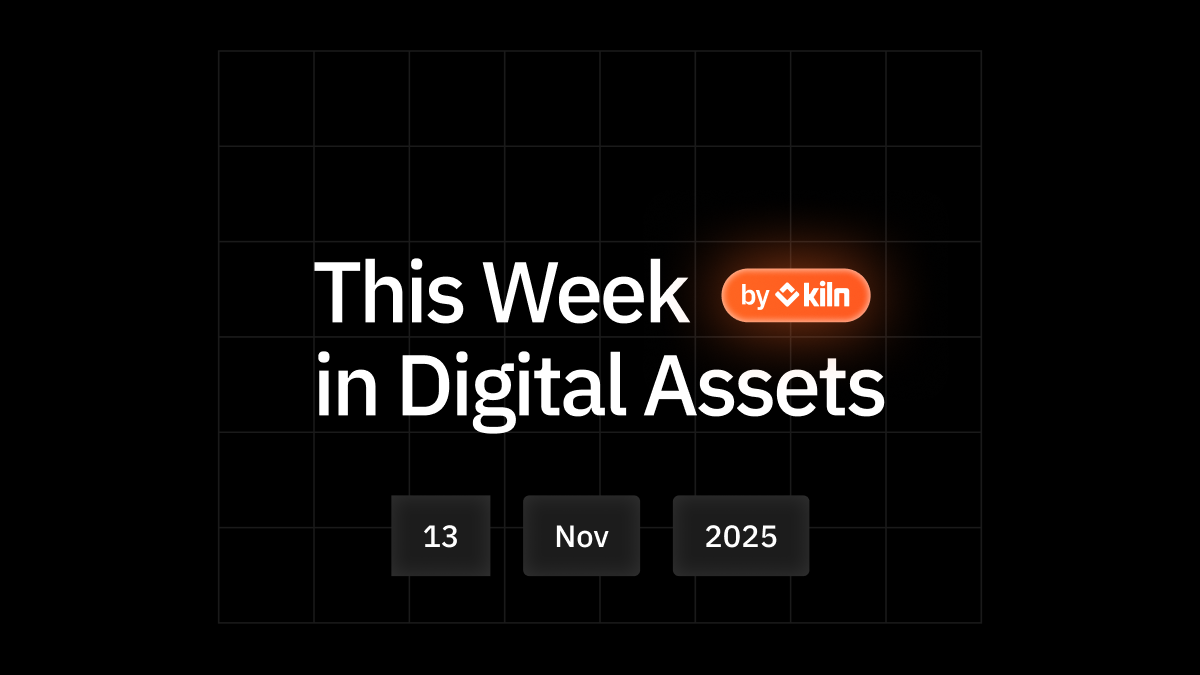Key takeaways:
- The upgrade is set to go live in the Ethereum mainnet on March 13.
- The Dencun upgrade is a pivotal component of Ethereum's Surge phase, aimed at dramatically enhancing scalability.
- The introduction of Proto-Danksharding via EIP-4844, a cornerstone of Dencun, promises to reduce transaction costs and scale Ethereum beyond current capabilities.
- The upgrade's innovative use of "blobs" facilitates efficient short-term data storage, paving the way for more cost-effective Layer 2 solutions.
- Kiln's involvement in testnet phases, including Sepolia and Holesky, underscores our role in the upgrade's development and testing.
- There are no immediate actions for Kiln's customers to take related to this upgrade.
Ethereum's journey towards scalability takes a significant leap with the Dencun upgrade, a crucial milestone in the blockchain's ambitious roadmap. This upgrade encapsulates Ethereum's commitment to enhancing user experience by addressing two critical challenges: scalability and transaction costs. As part of the Surge phase, Dencun sets the stage for Ethereum's evolution, aiming to achieve an unprecedented capacity of over 100,000 transactions per second.
What is the Dencun upgrade about?
At its core, the Dencun upgrade merges improvements from the Cancun upgrade on the execution layer with the Deneb upgrade on the consensus layer. This dual enhancement strategy aims to streamline Ethereum's protocol rules and block validation processes, respectively. The integration of several Ethereum Improvement Proposals (EIPs) targets scalability from multiple angles, with Proto-Danksharding being the most anticipated.
Here are three main EIPs:
EIP-4844: Proto-danksharding
This EIP-4844, known as Proto-Danksharding, introduces a significant upgrade with "blobs", enabling efficient data storage over short periods. This innovation makes rollups more cost-efficient and lays the groundwork for scalable solutions via Layer 2 networks. The implications extend to staking, where a reduction in current gas consumption is anticipated, accompanied by a slight increase in resources on the beacon side. This marks a notable advancement in Ethereum's functionality and resource management.
EIP-7044: Perpetually valid signed voluntary exits
This EIP is designed to enhance the user’s staking experience by addressing the limitations of pre-signed exit messages. Presently, these messages are valid for only up to 2 upgrades of Ethereum, necessitating periodic regeneration as the protocol evolves. With the implementation of this EIP, a significant improvement emerges—exit messages will now be valid indefinitely, eliminating the need for regular regeneration and providing users with a seamless staking experience.
EIP-7514: Max epoch churn limit
The EIP-7514 proposes a modification to the maximum validator growth rate, shifting from an exponential to a linear increase by introducing a cap on the epoch churn limit. Currently, the growth of validators operates exponentially, regulated through the entry queue mechanism. As more active validators join the network, more can enter per-epoch (currently set at 13 per-epoch based on the existing validator count). The proposal suggests transitioning to a linear growth model and implementing a cap, restricting the entry to 8 validators per-epoch. This adjustment implies that, especially under high staking loads, the entry queue will take a longer time to process.
Kiln’s role and the market impact
As part of Dencun preparations, Kiln was one of the first providers on Holesky in September.
We’ve played a key role in testing network deployments with hundreds of thousands of validators in testnets, first in Sepolia, then Holesky. By implementing Holesky in our apps, we ensure robust staking support for our customers, contributing to the overall stability of the blockchain ecosystem.
The Dencun upgrade is poised to make Ethereum more attractive to a broad spectrum of users, from developers to investors, by enhancing transaction efficiency and reducing costs. With the reduced number of validators (from 13 to 8) entering the queue per epoch, there may be an incentive for increased volume before the upgrade.
Specifically for Kiln customers, changes in the validator entry and exit queues, along with adjustments in MEV rewards due to decreased congestion, are important considerations. Kiln's proactive engagement in testnets like Sepolia and Holesky demonstrates its commitment to ensuring a smooth transition and robust support for staking operations post-upgrade. The upgrade is set to go live in the Ethereum mainnet on March 13.
What lies ahead
With the Dencun upgrade, Ethereum continues its march towards a scalable, efficient future. The next steps on Ethereum's roadmap, including further scalability enhancements and decentralization efforts such as proposer-builder separation, signal an exciting era for the blockchain ecosystem. Kiln remains at the forefront, supporting these advancements with its comprehensive staking solutions and infrastructure.
Contact us to learn more about ETH staking
About Kiln
Kiln is the leading enterprise-grade staking platform, enabling institutional customers to stake assets, and to whitelabel staking functionality into their offering. Our platform is API-first and enables fully automated validators, rewards, and data and commission management. With over $4 billion crypto assets being programmatically staked, Kiln has a particularly strong track record on Ethereum as we run about 4% of the network; this includes 38,500+ with 0 slashing events.
About Kiln
Kiln is the leading staking and digital asset rewards management platform, enabling institutional customers to earn rewards on their digital assets, or to whitelabel earning functionality into their products. Kiln runs validators on all major PoS blockchains, with over $11 billion in crypto assets being programmatically staked and running over 5% of the Ethereum network on a multi-client, multi-cloud, and multi-region infrastructure. Kiln also provides a validator-agnostic suite of products for fully automated deployment of validators and reporting and commission management, enabling custodians, wallets, and exchanges to streamline staking or DeFi operations across providers. Kiln is SOC2 Type 2 certified.









